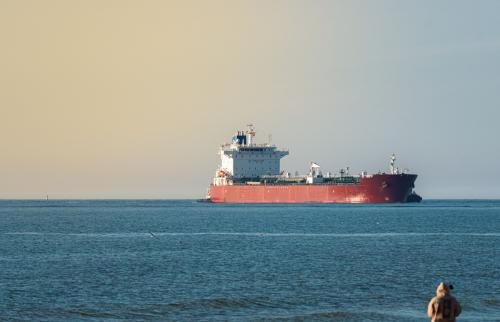Introduction
I am very pleased and honored to be invited by the Committee on International Relations to participate in this very important hearing on “Oil Diplomacy.” Energy security is a subject that has much engaged me for over 25 years. It constitutes one of the major themes of The Prize: the Epic Quest for Oil, Money, and Power.
I would like to begin by observing that energy security has recurrently been an issue since the rise of industrial society more than a century ago. The precise beginnings may well have been when Winston Churchill, as First Lord of the Admiralty, converted the Royal Navy from coal to oil on the eve of the First World War. As a result, the Royal Navy moved from Welsh coal as the source of its propulsion to Persian-Iranian—oil. Confronted by this new risk, Churchill articulated a principle of energy security that is no less apt in the first decade of the twenty-first century: “Safety and certainty in oil lie in variety and variety alone.”
Over the century since Churchill’s decision, energy security has persistently come to the fore. It was a very critical dimension in World War II. In the decades after World War II, there were five Middle East crises that either disrupted or threatened to disrupt the world oil supply system.
Of course, we are not in a crisis situation today. But energy security is front and center again—for the first time since the Gulf Crisis a decade ago. At that time, the imminent threat was that the breadbasket of world oil production—the Persian Gulf—would fall under the sway of Saddam Hussein, enabling his regime to translate oil into political, economic, and military power—and into weapons of mass destruction.
A decade later, energy security concerns are once again on the table. Events demonstrate that, with the end of the Cold War and the resolution of the Gulf Crisis, we passed into a decade of exaggerated confidence about security. That includes energy security.
My objectives in today’s hearing are three-fold.
First—to provide the Committee with a clear framework for understanding our national energy position.
Second—to identify key axioms for thinking about energy security.
Third—to relate our international relations in various regions—including Russia, West Africa, and Latin America—to the future of oil supply.
We need to begin, however, by asking why energy security has come to the fore again:
Rise in U.S. Oil imports. A quarter century ago, at the time of the 1973 oil crisis, the United States imported 36 percent of its oil. Today, it’s over 50 percent.
Turmoil in the Middle East. There is growing concern that the Middle East could be destabilized by a number of factors—Iraq, terrorism, al-Queda, demographic pressures, Israeli-Palestinian conflict, generational change.
Market pressures. Energy price spikes in recent years have—in this post-new economy world—reminded us of the importance of energy.
Vulnerability. To all this, add a new concern in addition to the traditional concerns about the flow of oil—the security of our energy infrastructure, part of the overall focus on homeland security.
The Brookings Institution is committed to quality, independence, and impact.
We are supported by a diverse array of funders. In line with our values and policies, each Brookings publication represents the sole views of its author(s).


Commentary
TestimonyOil Diplomacy
June 20, 2002